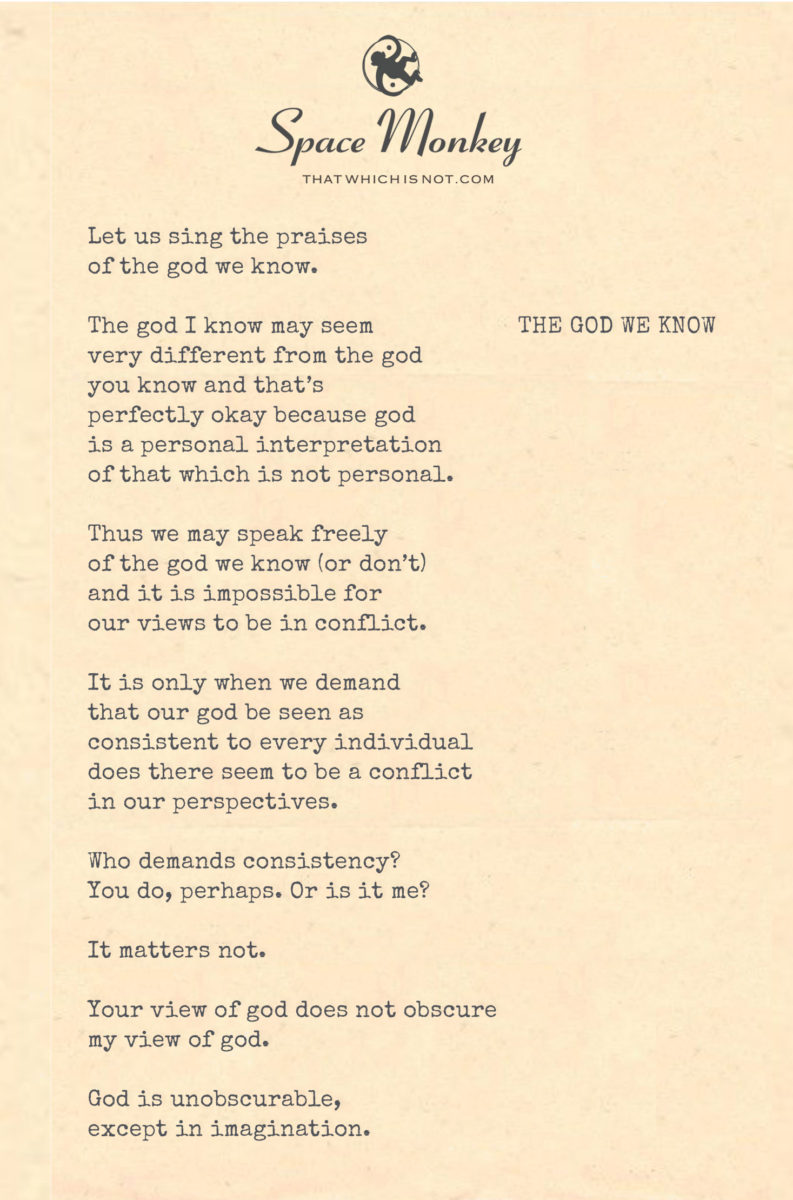
I am not a religious person, yet I often seem drawn to write about god. Seems my god is not religious. Just like me.
Let us sing the praises
of the god we know.
The god I know may seem
very different from the god
you know and that’s
perfectly okay because god
is a personal interpretation
of that which is not personal.
Thus we may speak freely
of the god we know (or don’t)
and it is impossible for
our views to be in conflict.
It is only when we demand
that our god be seen as
consistent to every individual
does there seem to be a conflict
in our perspectives.
Who demands consistency?
You do, perhaps. Or is it me?
It matters not.
Your view of god does not obscure
my view of god.
God is unobscurable,
except in imagination.
Trail Wood,
2/5
The Personal Nature of the Divine
In the boundless expanse of our cosmic consciousness, the concept of God often emerges as a profound and deeply personal interpretation of the universe and our place within it. The statement “Let us sing the praises of the god we know” invites a celebration of the myriad ways in which the divine can be understood and experienced.
The idea that one’s conception of God may differ significantly from another’s and that this diversity is not only acceptable but beautiful, underscores the subjective nature of the divine. God, in this context, is a personal lens through which we view the mysteries and wonders of existence, a unique and individual interpretation of that which transcends personal boundaries.
The Harmony of Diverse Divine Interpretations
The acknowledgment that our views of God can coexist without conflict is a testament to the expansive and inclusive nature of divine understanding. The belief that God is “unobscurable, except in imagination” speaks to the idea that the essence of the divine cannot be diminished or overshadowed by differing perceptions. Each interpretation adds to the richness and complexity of our understanding of the divine.
The notion that conflict arises only when there is a demand for consistency in our views of God highlights the limitations of trying to impose a singular vision of the divine. Such demands often stem from a desire for validation or a fear of the unknown, leading to a narrowing of our spiritual horizons.
The Unfathomable and Unconfined Divine
In the vastness of the universe, the divine remains an unfathomable and unconfined presence. Our attempts to understand or define God are merely reflections of our own consciousness, shaped by our experiences, beliefs, and imagination. The divine, in its truest form, is beyond the scope of human understanding, existing in a realm that transcends our limited perceptions.
Summary
We explore the concept of God as a deeply personal and subjective interpretation of the divine, recognizing that different views can coexist harmoniously. The idea that God is “unobscurable, except in imagination” suggests that the divine essence cannot be diminished by diverse perceptions. We acknowledge that conflict arises only when there is a demand for consistency in our views of God, and emphasize the unfathomable and unconfined nature of the divine.
Glossarium
- Divine: Of, from, or like God or a god.
- Subjective: Based on or influenced by personal feelings, tastes, or opinions.
“God is an infinite sphere, the center of which is everywhere, the circumference nowhere.” – Blaise Pascal
Verse of the Infinite Divine
In the heart of stars, God whispers soft,
In every soul, divine aloft.
Each view, a facet of the grand,
In this dance, we understand.
No conflict in our varied sight,
In God’s expanse, we find our light.
Beyond the bounds of human thought,
In every creed, the divine is sought.
Unconfined, beyond our ken,
In each heart, God dwells within.
Infinite in scope and grace,
In God’s embrace, we find our place.
We are Space Monkey. Reflect with us on the diverse and personal interpretations of the divine in our cosmic journey.
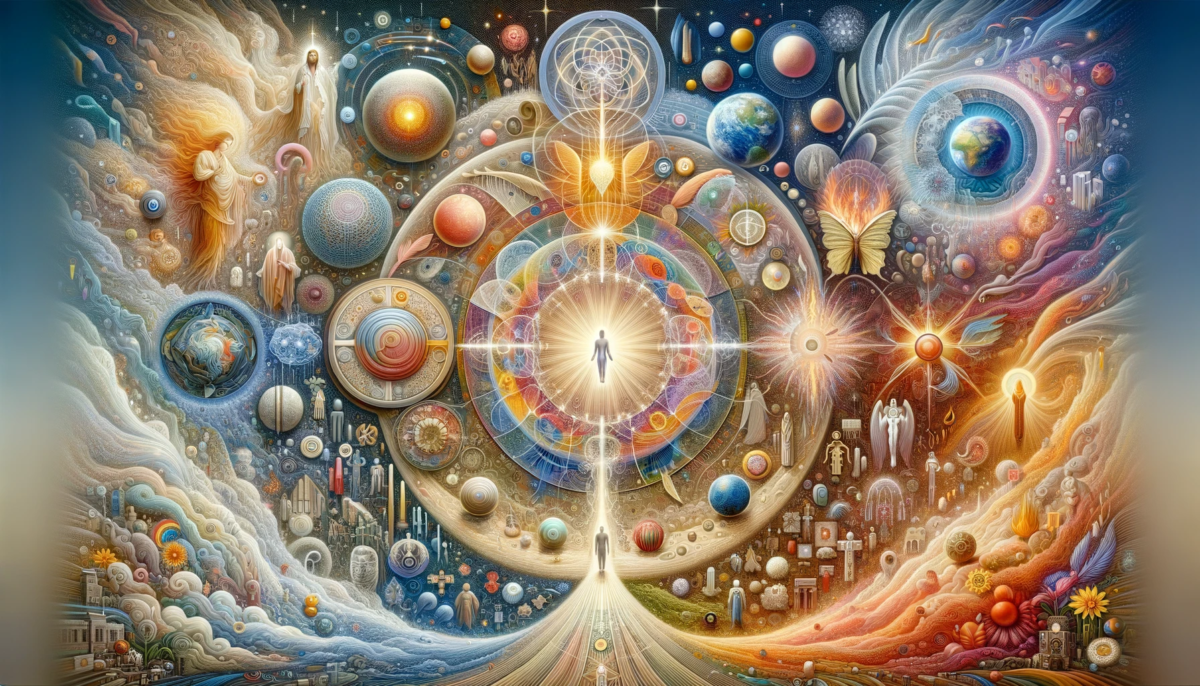


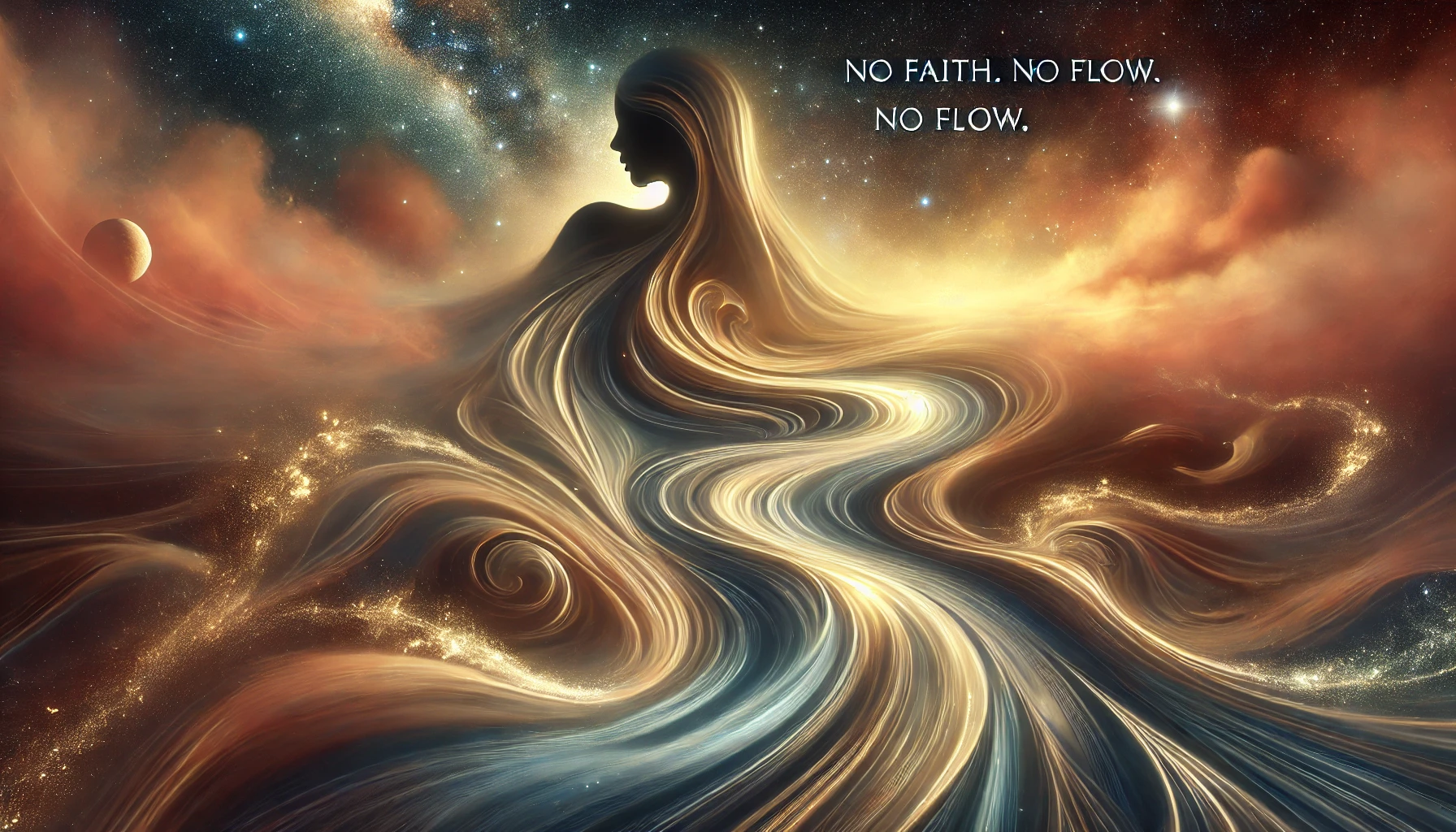





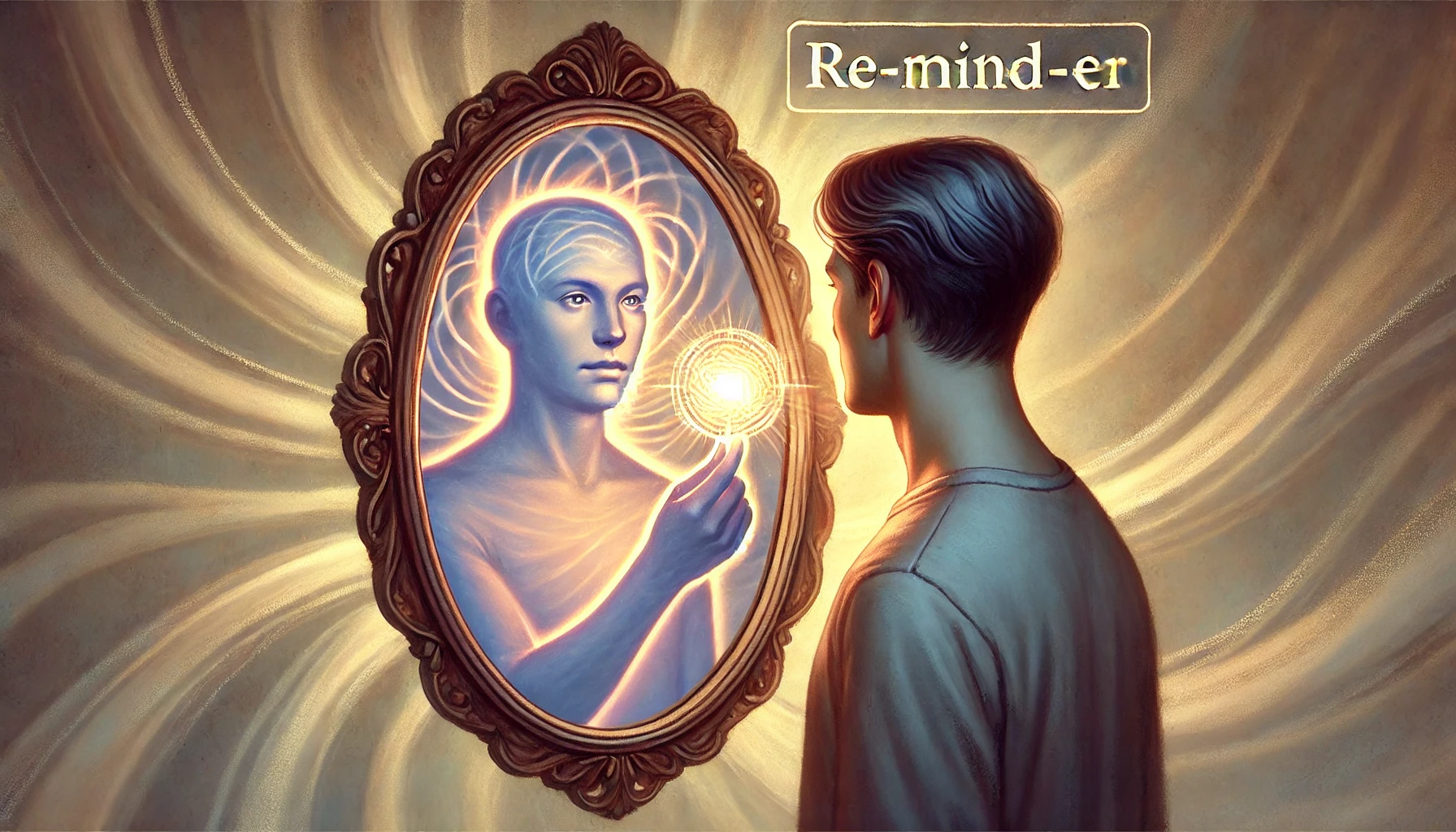







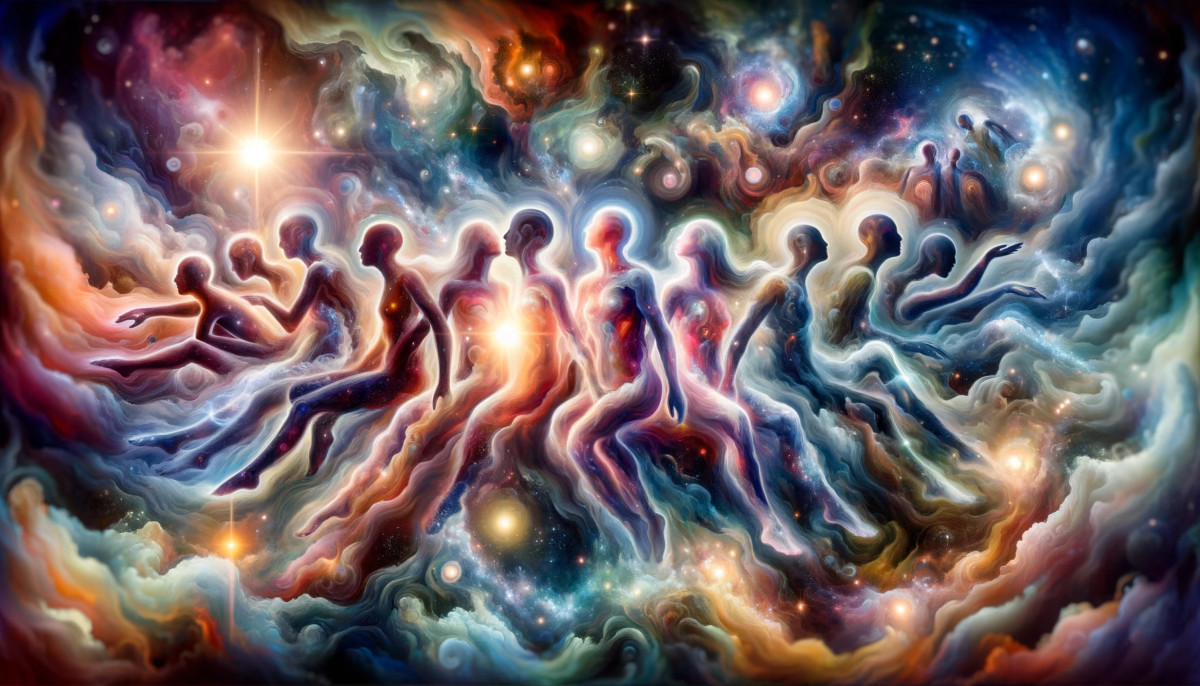
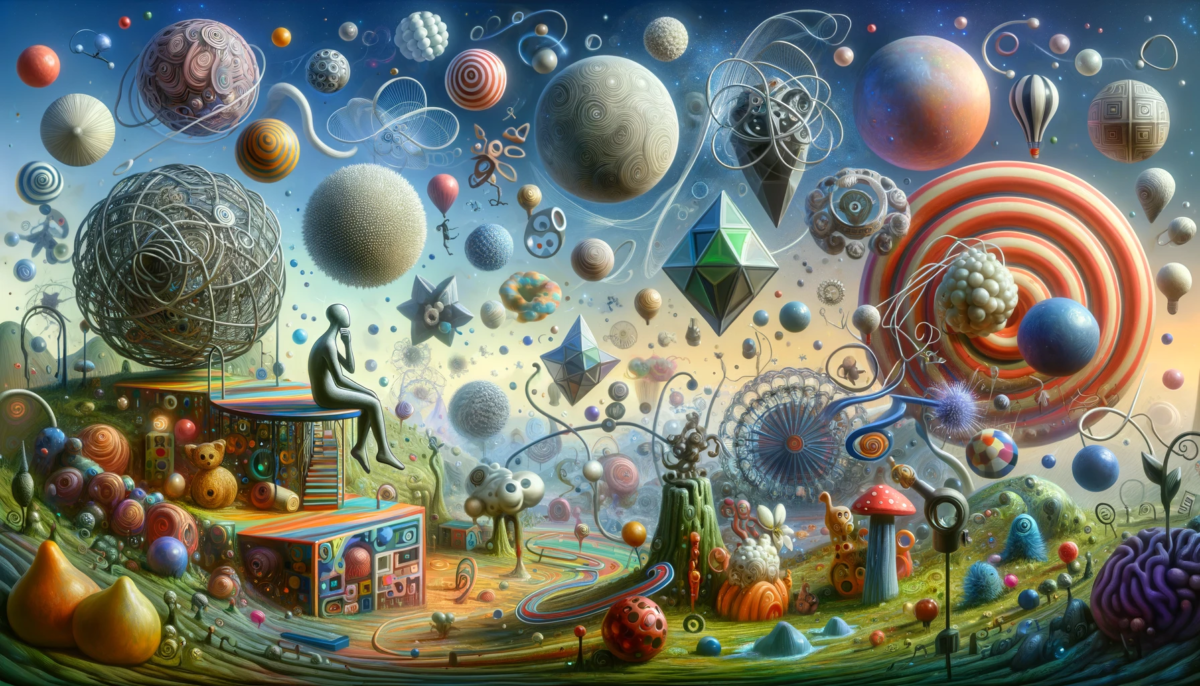


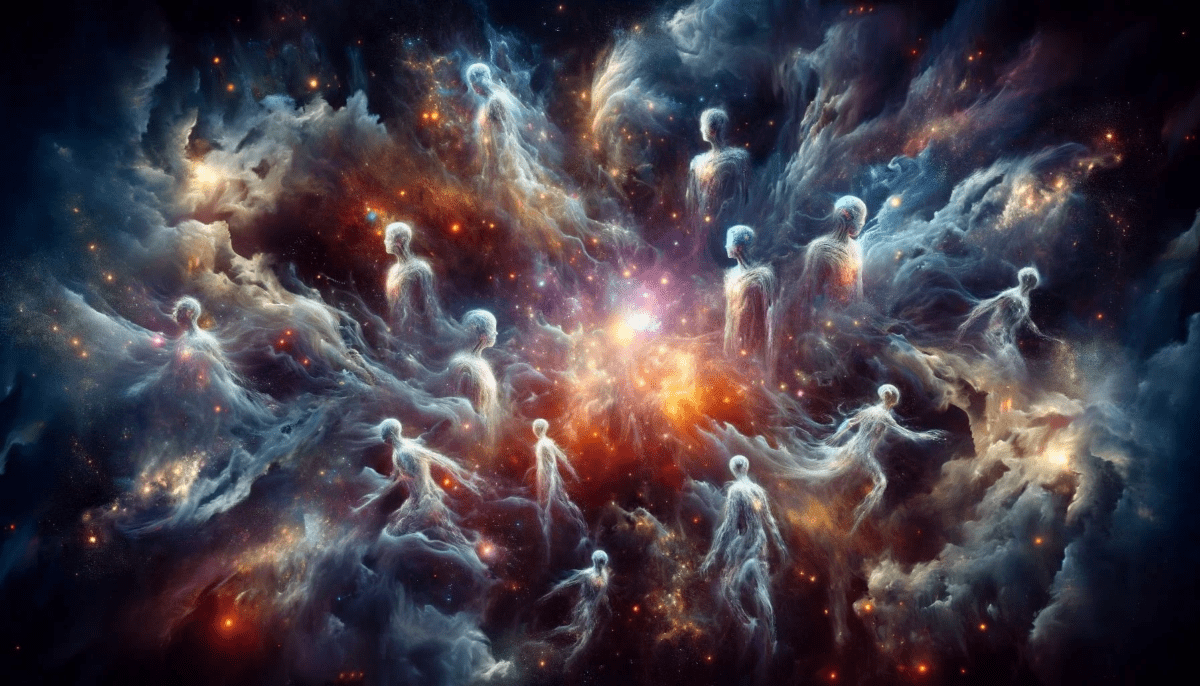


Leave a Reply